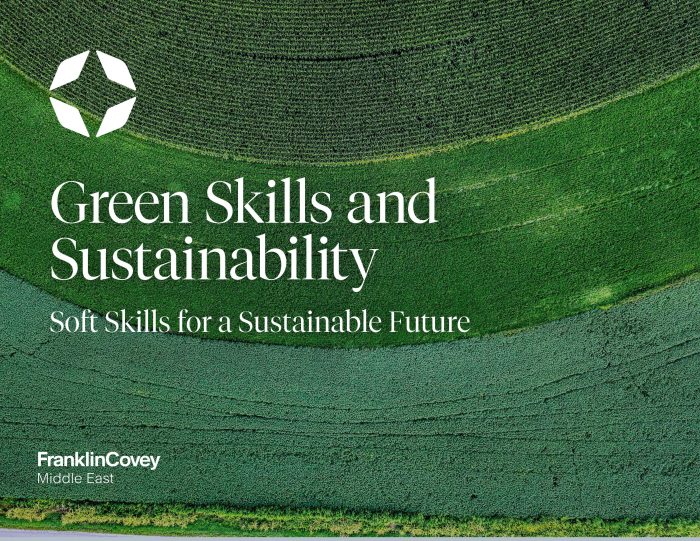
Soft Skills for a Sustainable Future
Free Guide
The drive towards global sustainability is reinforced by key international frameworks like the United Nations Sustainable Development Goals (SDGs) and the Paris Agreement. These frameworks are foundational to promoting environmental, social, and economic sustainability worldwide. The transition to renewable energy sources is not just an environmental or technological shift but a comprehensive transformation of global energy infrastructures. This shift is supported by advancements in energy storage, smart grid technologies, and energy efficiency measures. The economic benefits of renewable energy, including job creation and reduced energy costs, contribute to its rapid adoption.
COP 29 and Global Climate Action
Following the landmark COP 28 hosted in Dubai, COP 29 in Baku, Azerbaijan, built upon these efforts with further commitments to drive global climate action. The conference emphasized the transition from fossil fuels to renewable energy and introduced an ambitious target to quadruple renewable energy capacity by 2030, along with substantial improvements in energy efficiency.
Nations also prioritized increased climate financing, committing $300 billion annually to support developing countries in adopting sustainable practices and technologies. These developments have accelerated the urgency for organizations to align with global sustainability trends, making green skills and leadership critical for driving impactful change.
Importance of Green Skills
Understanding green skills is crucial for leaders in organizations. These skills are essential for performing jobs in the environmental sector in ways that align with sustainable and responsible business practices. Businesses investing in green skills and providing learning opportunities for employees to upgrade their skills can stay ahead of the curve and remain relevant in the green transition. A recent LinkedIn report tracking green talent across 48 countries indicated a significant increase in green talent, with an average annual growth of 12% between 2022 and 2023. However, the demand for green skills is growing faster than the supply, with seven out of eight workers currently lacking any green skills.
Sector-Specific and Cross-Sectoral Green Skills
Green skills encompass knowledge, competencies, values, and attributes needed to support a sustainable, low-carbon, and resource-efficient society. These skills can be categorized into sector-specific skills related to green technologies or methods and cross-sectoral skills related to environmentally friendly processes applicable across multiple sectors of the economy.
Essential Soft Skills for Sustainability Initiatives
Leaders need specific soft skills to drive sustainability initiatives effectively. Key skills include:
- Communication: Effectively conveying sustainability goals and initiatives.
- Persuasion: Convincing stakeholders of the benefits of sustainable practices.
- Team-building: Fostering collaboration and a sense of ownership among employees.
Leaders with these skills can inspire and unite various stakeholders, promoting and embedding environmental goals into company culture. Forward-thinking organizations should apply these behavioral changes at scale to ensure a ready leadership pipeline for sustainability change initiatives.
Partnering for Lasting Behavior Change
Achieving organizational sustainability initiatives through large-scale behavioral change requires collaboration with a partner that addresses learning and development (L&D) needs. FranklinCovey’s unique approach to leadership development is based on timeless principles of human effectiveness. By seamlessly integrating content, consulting, and technology, FranklinCovey helps organizations achieve lasting transformation and breakthrough results. Their approach has been refined over 30 years, working with tens of thousands of teams and organizations globally.
Conclusion
Green skills and essential soft skills are critical for advancing sustainability initiatives within organizations. By investing in green skills and partnering with experts like FranklinCovey, businesses can ensure their workforce is prepared for a sustainable future.
From the archive
Explore all of our personal and professional development resources for individuals and organizations.









